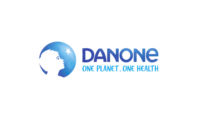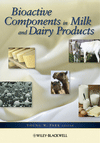Danone North America becomes the largest certified B Corporation in the world
The announcement coincides with the unveiling of the company’s new name.

Danone North America, headquartered in White Plains, N.Y., and Broomfield, Colo., said it is continuing the long-term commitment of French parent company Danone to balancing financial success with social and environmental responsibility. The company, formerly known as DanoneWave, is commemorating its first anniversary by announcing the achievement of becoming the largest certified B Corporation in the world — two years ahead of its declared target — and changing its name to Danone North America.
The maker of food and beverage brands that include Dannon, Danimals, Silk, So Delicious, Horizon Organic, Vega and Wallaby, among others, Danone North America is a top 15 food and beverage company and top organic food manufacturer in the United States. It was formed one year ago as DanoneWave when the Danone U.S. dairy and WhiteWave Foods businesses were combined, the company said, to create the largest public benefit corporation in the world. Incorporating as a public benefit corporation legally committed the new subsidiary to balance shareholders' financial interests with social and environmental considerations.
The company said its new name — Danone North America — represents its intention to continue the purpose journey with a single identity that's easily recognizable to the many people who enjoy the brands it makes.
Becoming a certified B Corporation takes the company's commitment one step further. B Corp certification is for businesses what organic is to food products, Danone North America noted: a promise that a company is doing business in a way that meets rigorous standards of verified performance, transparency and accountability. The company is certified by B Lab, a third-party non-profit.
"We are incredibly proud to officially join the B Corp movement today as Danone North America,” said Mariano Lozano, CEO, Danone North America. “Our new name better positions us as part of Danone, a forward-looking and unified global food and beverage company that demonstrates business success can be synonymous with building a healthier world through food.
"This designation demonstrates to employees, consumers, partners, retailers, society and governments that we are committed to continuous improvement as we work to bring the company's ‘One Planet. One Health’ vision to life through our business and brands,” he continued. “We couldn't have achieved this milestone with such speed and efficiency without the passion, dedication and tireless work of our more than 150 employees who helped in the certification process, along with the incredible support of our partners."
The certification also supports Danone's long-time dual project of balancing economic success and social progress, which the company's then CEO, Antoine Riboud, first articulated publicly in 1972. Today, with the addition of not only Danone North America in the United States, but also Danone Canada, eight Danone subsidiaries have been certified so far — in Argentina, France, Indonesia, Spain and the U.K., the company noted.
In addition, parent company Danone aims to be the first multinational food company to obtain a global B Corp certification, Danone North America said. It has been a B Lab partner since 2015 to help define a B Corp model suitable for publicly traded global companies.
"People rightly expect large organizations like Danone to use their scale for positive impact while demanding transparency, authenticity and action,” said Emmanuel Faber, Danone chairman and CEO. “It's time to make sustainable business the only way of doing business."
To obtain B Corp certification, companies must complete a B Impact Assessment and earn an audited minimum score of 80 out of 200 possible points and recertify — with the aim to continuously improve — every two years. Danone North America said it achieved a score of 85.
In addition to becoming a Certified B Corporation, Danone North America said it continues to make progress toward its purpose of nourishing people, communities and the world. Efforts include fighting climate change, driving more sustainable ingredient sourcing, advancing packaging recyclability, reducing waste, conserving water, fighting hunger, supporting local communities and ensuring animal welfare.
Looking for a reprint of this article?
From high-res PDFs to custom plaques, order your copy today!







